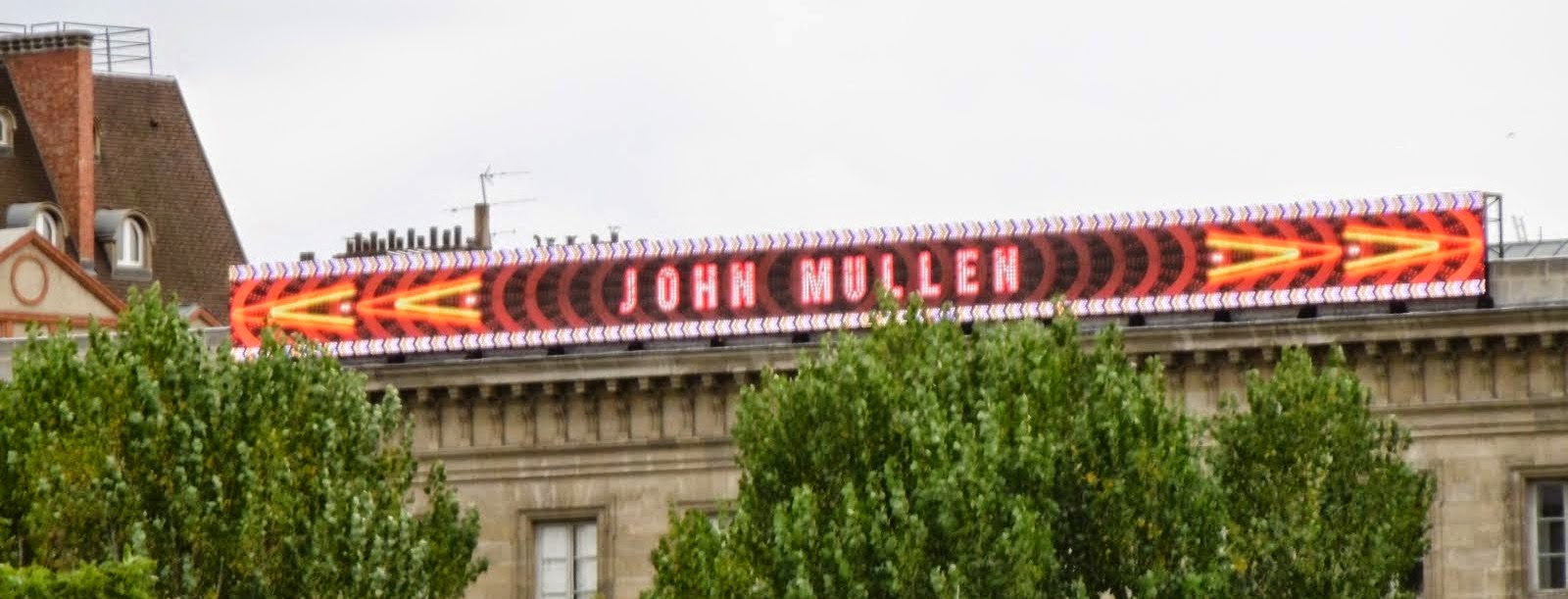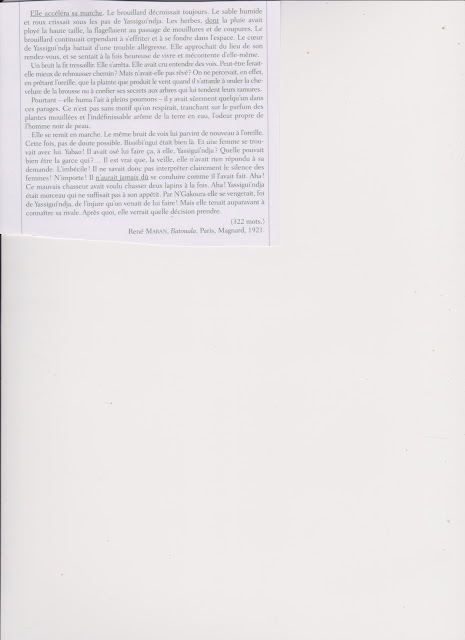If you found the video in class difficult, or if you want to see the end, Watch it here!
https://www.youtube.com/watch?v=pkASh_mjIts
Links and comments for university students of English, and of British Studies and British history. Study links connected with my classes, and general links on current affairs etc. There are sometimes indications as to what group might be particularly interested (L2 for Licence 2nd year, for example)
...

Tuesday, February 28, 2017
Revising cinema
I will be putting up the powerpoint on TV etc on Thursday. But I just saw this useful powerpoint on British cinema which someone else put up: have a look.
https://www.slideshare.net/robertclackmedia/screening-the-brits-an-introduction-to-british-cinema
https://www.slideshare.net/robertclackmedia/screening-the-brits-an-introduction-to-british-cinema
Sunday, February 26, 2017
L3 DST popular culture
As you know the classroom test in ten days' time will be a text commentary. This is a difficult exercise. The most important thing is to know the subject well, otherwise it is impossible, but good methodology allows you to *show* you know the subject and can structure your knowledge. Here are a few tips, and a link to an example:
Le commentaire de civilisation :
Quelques éléments.
Le commentaire de texte en
civilisation n’est pas facile, et est bien différent d’un commentaire de texte
littéraire. Votre objectif est de montrer (trois points d’importance égale) votre
très bon niveau d’anglais, votre compréhension complète et nuancée du texte, et
votre compréhension de l’histoire avant et après la production de ce texte. Il
ne suffit pas déviter des erreurs, il faut montrer que vous savez des choses.
On distingue quatre phases principales :
1.Analyse
du contexte qui constituera l’introduction
Il faut situer le
document dans son contexte : nature, auteur,
date, origine, situation
historique, etc.
Recopier du texte la date
précise est peu probante. Préférez des dates significatives « après
seulement un an du premier gouvernement de Margaret Thatcher ». « Peu
avant le grand changement qu’a amené la loi XX » etc
Il faut résumer en deux
ou trois phrases son contenu et les circonstances de sa composition).
Il faut définir son objectif
aussi précisément que possible.
Distinguer l'auteur du
document et ses destinataires.
2.Analyse
du contenu
Repérer les idées centrales du texte.
Définir une problématique (un questionnement) à partir des idées
centrales du texte.
Repérer les noms propres, les dates, les événements cités ayant
une portée historique.
Analyser les mots et
les notions qui ont une portée historique : toponymes, anthroponymes,
termes techniques, procédés rhétoriques, registres de langue, etc.
3.Rédaction
du commentaire
Éviter le commentaire linéaire du texte pour ne pas tomber dans la paraphrase.
Adopter un plan thématique.
Composer le commentaire en ayant systématiquement recours au texte
pour étayer les idées développées. Il n’est pas nécessaire de citer le texte
(et ça prend du temps) ; une référence au numéro de ligne suffit.
Veiller à soigner les enchaînements et la progression entre les
différentes idées et parties du développement.
Respectez les étapes
suivantes dans la rédaction : exposé de l'idée, analyse des éléments
relevés, commentaire et enfin, élargissement de la réflexion à d'autres faits
historiques.
Ce dernier élément est souvent oublie. Un paragraphe montrant
que vous savez ce qui s’est passé après la date du texte commenté, mais en lien
avec son contenu est pourtant très utile.
4.Conclusion
de l'analyse
Synthèse des idées
essentielles issues de l'analyse.
Réponse à la
problématique définie en début d'étude.
Importance du document
au regard de l’évolution historique connue.
Relation avec des faits ou des documents similaires pour
ouvrir des perspectives.
You will find here an example of a text commentary on British political history:
Friday, February 24, 2017
Police and ethnic minorities in the UK today
This article gives news about the police and ethnic minorities in the UK today.
https://www.theguardian.com/uk-news/2017/feb/23/met-trying-to-gag-critics-by-defunding-its-black-officers-association
https://www.theguardian.com/uk-news/2017/feb/23/met-trying-to-gag-critics-by-defunding-its-black-officers-association
L3 Popular culture: reality television ... and cookery programmes
It is fashionable to be unstintingly negatve about reality television, but do we know what we are talking about? What is the definition of reality television? Why do people like it?
This article from CNN défends reality TV: but what do you think?
http://edition.cnn.com/2010/SHOWBIZ/TV/07/29/defending.reality.tv/index.html
There are several sub genres to reality TV (for example the competition show. My favourite is the historical reconstruction reality show. Here is a blog about these https://historicalrealitytv.wordpress.com/page/2/
Another extremely successful genre in UK television is the cookery show. Here is an article on the history of the UK cookery show.
http://www.telegraph.co.uk/culture/tvandradio/10394111/The-10-most-influential-British-cookery-shows.html
This article from CNN défends reality TV: but what do you think?
http://edition.cnn.com/2010/SHOWBIZ/TV/07/29/defending.reality.tv/index.html
There are several sub genres to reality TV (for example the competition show. My favourite is the historical reconstruction reality show. Here is a blog about these https://historicalrealitytv.wordpress.com/page/2/
Another extremely successful genre in UK television is the cookery show. Here is an article on the history of the UK cookery show.
http://www.telegraph.co.uk/culture/tvandradio/10394111/The-10-most-influential-British-cookery-shows.html
Wednesday, February 22, 2017
Tuesday, February 21, 2017
M1 LEA Economic questions: women in comedy
This video looks at the progress of women in the US in the domain of ... comedy.
https://www.youtube.com/watch?v=nU4QIk6yx_k
https://www.youtube.com/watch?v=nU4QIk6yx_k
Monday, February 20, 2017
L3 Popular culture: cinema industry two
Here are the other two episodes in the unmissable series on how the cinema industry works. Listen to them. They deal with the link between films people love, and films which make money. You can download them to an MP3 player.
Episode two
Episode three
Episode two
Episode three
Devoir sur table L3 popular culture
Your classroom test has been postponed. It will not be on the 28th February, but on the 7th March in class time.
The test will be one hour and fifty minutes long and will take the form of a text commentary. You will need to show that you understand and can analyze the document, that you know the specific and general context, and that you write in excellent English. I will be posting here some indicators about how to do such a text commentary.
The test will be one hour and fifty minutes long and will take the form of a text commentary. You will need to show that you understand and can analyze the document, that you know the specific and general context, and that you write in excellent English. I will be posting here some indicators about how to do such a text commentary.
Monday, February 13, 2017
L3 Culture populaire: book reviews to read
In a week or two, we shall be moving onto the study of popular music. To prepare this subject, please read these two book reviews.
This one looks at a book by Claude Chastagner which has produced a clear and innovatory analysis of what rock might be.
And this one looks at a text book about all the tools which the popular music Creator has at his or her disposal to achieve the messages and effects required.
This one looks at a book by Claude Chastagner which has produced a clear and innovatory analysis of what rock might be.
And this one looks at a text book about all the tools which the popular music Creator has at his or her disposal to achieve the messages and effects required.
Wednesday, February 08, 2017
L3 British cinema
I will put up here soon the powerpoint on British cinema which you saw in class. Meanwhile, here are a few more trailers of British films which I mentioned.
It’s a
wonderful afterlife Gurinder Chadha
Happy Go
Lucky by Mike Leigh
Vera Drake
by Mike Leigh
Land and
Freedom by Ken Loach
Trainspotting
2 (2017) Danny Boyle
Monday, February 06, 2017
Master LEA 1 HOMEWORK ASSIGNMENT SEMESTER TWO
Just like in the first semester, your module mark will be composed of two subsidiary marks. The first will be a homework assignment. This is below. Remember to re-read as if it were a professional document: the "erreur d'inattention" does not exist in a professional document. Naturally, you will use an automatic grammar and spelling checker.
The second mark will be for your classroom test, which will take place in the usual place, on Tuesday 14th March at 12.30.
Here is the homework. Watch the video on US astronauts carefully. Summarize it in 500 words, and give your opinion in 300 words. Send me the homework by mail john dot Mullen at univ hyphen rouen dot fr
The video is here
https://www.youtube.com/watch?v=HA8gY59pueg
Do send me an email if you have any questions.
If you asked me a question at the end of the class, remember I have already forgotten your question, unlsee you have sent me an email :=)
The second mark will be for your classroom test, which will take place in the usual place, on Tuesday 14th March at 12.30.
Here is the homework. Watch the video on US astronauts carefully. Summarize it in 500 words, and give your opinion in 300 words. Send me the homework by mail john dot Mullen at univ hyphen rouen dot fr
The video is here
https://www.youtube.com/watch?v=HA8gY59pueg
Do send me an email if you have any questions.
If you asked me a question at the end of the class, remember I have already forgotten your question, unlsee you have sent me an email :=)
Friday, February 03, 2017
Thème agrégation: texte pour le 15 février
We have, if my calculations are correct, three classes left: 8 Feb, 15 Feb and 1 March.
Below is a passage to translate for the class on the 15th February.
We should be in T012 every week.
Concerning the Civilization topic, there will be four classes (TD) on the 15/03, 22/03, 29/03 and 05/04 from 9am to 11am. These will be for any questions on the topic, but mostly to practice text commentary and "leçon". Students from agrégation interne and externe are welcome.
Below is a passage to translate for the class on the 15th February.
We should be in T012 every week.
Concerning the Civilization topic, there will be four classes (TD) on the 15/03, 22/03, 29/03 and 05/04 from 9am to 11am. These will be for any questions on the topic, but mostly to practice text commentary and "leçon". Students from agrégation interne and externe are welcome.
L3 Popular Culture: cinema industry
Next Tuesday we will continue with the history of British cinema, and we may be able to begin on the history of TV and radio.
Every week there will be something on the blog for you to watch or listen to. It is important for you to do so. By the end of the semester you will be expected to be able to produce argumented essays on popular culture, which go well beyond description? For today here is a radio program (the forts in a series of three) which talks of the cinema industry and how it works.
Just click here for the MP3.
Every week there will be something on the blog for you to watch or listen to. It is important for you to do so. By the end of the semester you will be expected to be able to produce argumented essays on popular culture, which go well beyond description? For today here is a radio program (the forts in a series of three) which talks of the cinema industry and how it works.
Just click here for the MP3.
Thursday, February 02, 2017
Wednesday, February 01, 2017
Subscribe to:
Posts (Atom)

